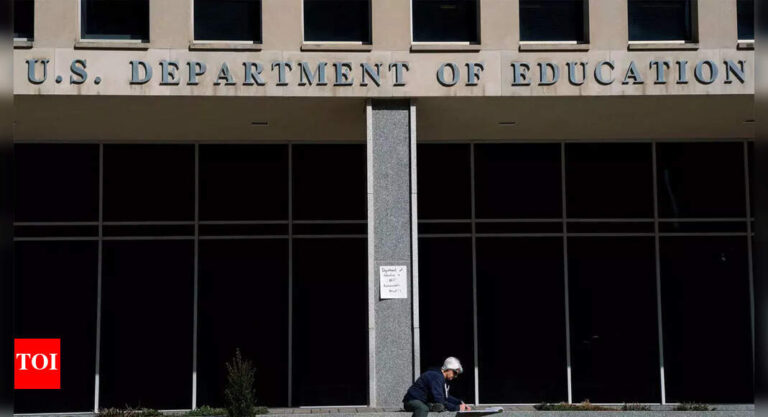
Princeton University has announced it will require SAT or ACT scores for undergraduate applicants beginning with the fall 2027 admission cycle. This decision ends a seven-year period of test-optional admissions at the university, a policy initially introduced during the Covid-19 pandemic to address reduced access to testing centres. With Princeton’s reinstatement of standardised testing, Columbia University remains the only Ivy League school maintaining a permanent test-optional policy.The university cited a review of five years of data during the test-optional period which showed stronger academic performance among students who submitted test scores. “The decision to resume testing requirements follows a review of five years of data from the test-optional period, which found that academic performance at Princeton was stronger for students who chose to submit test scores than for students who did not,” the university stated, as reported by the Daily Princetonian. This marks a significant shift in admissions strategy that aligns Princeton more closely with its Ivy League peers.Shifting landscape: Pre and post-Covid testing policies in the USBefore the Covid-19 pandemic, most US universities required applicants to submit SAT or ACT scores as part of a standardised admissions process. Concerns about the fairness and predictive value of these tests had already prompted a growing number of institutions to adopt test-optional policies. The onset of the pandemic accelerated this trend, forcing many schools to suspend testing requirements due to closures of test centres and other logistical challenges.By 2022, around 80% of undergraduate institutions in the US had moved to test-optional admissions, as reported by recent education studies. However, this widespread shift is now facing a reversal among top universities. Princeton’s announcement follows similar moves by Harvard, Brown, Dartmouth, and the University of Pennsylvania, all of which have reinstated or plan to reinstate testing requirements for the 2024-26 admissions cycles.
Why reinstating standardised tests mattersPrinceton’s return to requiring SAT or ACT scores reflects the university’s emphasis on academic preparedness and consistency in evaluating applicants. The administration has stressed that standardised testing remains only one element of a holistic admissions review. “There are no minimum test score requirements for admission. All information in each student’s application is considered in the student’s individual context,” the university said in its press release, as reported by the Daily Princetonian.The university also noted an exception for active military personnel, who may apply without test scores without disadvantage due to limited access to testing sites. This policy detail recognises particular challenges faced by some applicants.
Comparison with Columbia and other IviesWith Princeton’s announcement, Columbia University remains the only Ivy League institution maintaining a permanent test-optional admissions policy. Unlike other Ivies, Columbia has committed to a test-optional model regardless of the ongoing debate about the role of standardised tests. Yale offers a test-flexible policy, allowing applicants to submit SAT, ACT, Advanced Placement (AP), or International Baccalaureate (IB) scores, broadening the options available to students.
Broader implications for admissionsThe reinstatement of standardised testing at Princeton and other Ivy League schools signals a broader reassessment of admissions criteria among elite US universities. Proponents argue that test scores provide an objective, standardised measure of academic readiness, especially valuable amid diverse high school grading standards and curricula.Critics, however, maintain that standardised tests can reinforce systemic inequities, as access to test preparation and testing centres is uneven. The Covid-19 pandemic highlighted these disparities when many students were unable to sit for exams, prompting the initial shift to test-optional policies.The ongoing debate reflects a balancing act between equity and academic rigor. Princeton’s decision aligns with an effort to ensure admitted students are prepared for the university’s academic demands while maintaining holistic review processes that consider multiple facets of an applicant’s background and achievements.








